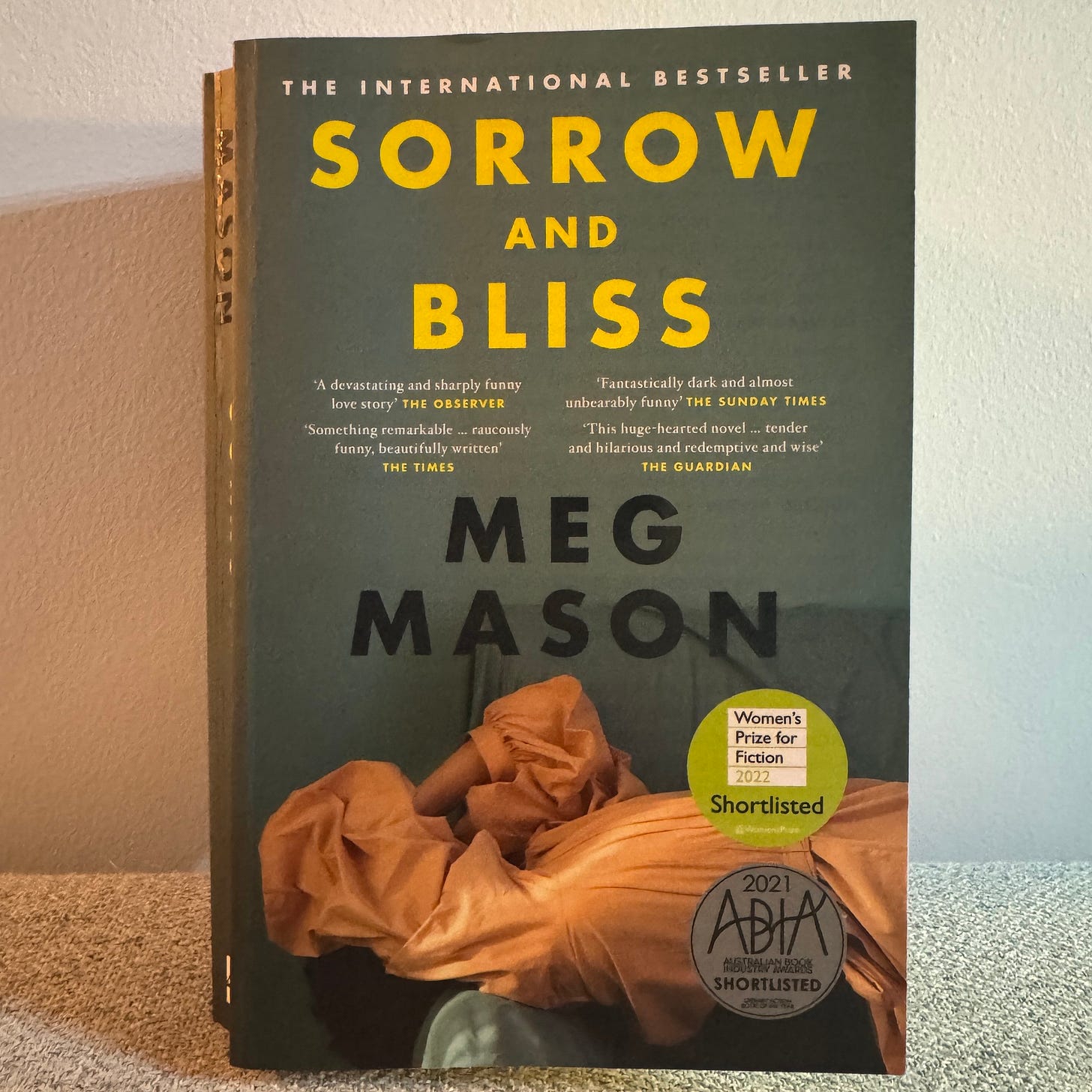SORROW AND BLISS by Meg Mason
Sorrow and Bliss by New Zealand author Meg Mason is the story of Martha, a young English woman who is suffering from an unnamed mental illness.
It’s been a rough run recently, with two books started but set aside because they just weren’t working for me. So it’s nice to finally have a book to write about!

Sorrow and Bliss by New Zealand author Meg Mason is the story of Martha, a young English woman who is suffering from an unnamed mental illness. The story spans her life from her teen years to early forties, attempting to explain why a woman of means and talent could suffer as she does.
Martha’s parents are unsuccessful artists - her father a 5 minute wonder poet and her mother a sculpture artist who doesn’t sell any work. Martha andher younger sister, Ingrid, attend their partiesand watch as their parent’s marriage goes through extremes, without any permanent separation. As a result, the two girls grow up soewhat unconventionally - Martha descends into mental health challenges, while Ingrid takes the conventional route of marriage and babies, though neither woman seems comfortable with their lot in life. Martha tells herself and anyone who will listen that she doesn’t want children, because of her health challenges.
We also have extended family - Aunt Winsome, her husband Rowland and their children, as well as Patrick, who attends boarding school with one of Winsome’s sons and who comes home for Christmas one year, and becomes partof the family.
This is a book that is well written, insofar as the story compels the reader to continue and see where the story lands. In that sense, there is no great plot climax - much in the way Ann Patchett writes stories that don’t necessarily have those “ah-ha” moments - and the discovery Martha has about herself is no great surprise. To that end, I didn’t feel the story wrapped up quite as neatly as a Patchett novel does and in some ways, it shouldn’t. However, I think I wanted a slightly higher degree of a “finish” to the book, instead of what felt like just a point in the story where it stopped. This isn’t a fatal flaw though, just my own preference.
I also struggled with the unnamed nature of Martha’s mental illness. Is she bipolar? Schizophrenic? Something else? Mason says the illness is fictional and non-specific, so isn’t named. I battled with that a little, because ultimately I found it harder to understand Martha’s behaviours without the context. There are many types of mental illness, and they present differently in different people. I wonder if having a greater level of specificity would have made it easier to understand Martha. This doesn’t change my empathy level, but it did make it hard to understand.
One of the reasons this is so well written is that compelling, need-to-see-what-happens-next element, in spite of the fact that, frankly, Martha is not a particularly likeable character. Relatable? Yes, in many ways. Likeable? Less so. There were several times when I felt Martha was seriously self-destructive (which is to be expected with her mental health issues) but also really whiny. Even with my compassion for her health challenges, this part was sometimes hard to read and, eventually, Ingrid verbalises much of what I was thinking throughout the novel. I was very #TeamIngrid in that moment!
I did like this novel - it was nice to get lost in a story so separate from my own existence lately and I am pleased I finally got around to reading it (thanks Nicole Hayes for the push!). If you like Ann Patchett, you’d probably like this too (Patchett herself has a recommendation of it on the back cover). Over the coming holiday season, it could be a good one to get lost in.


